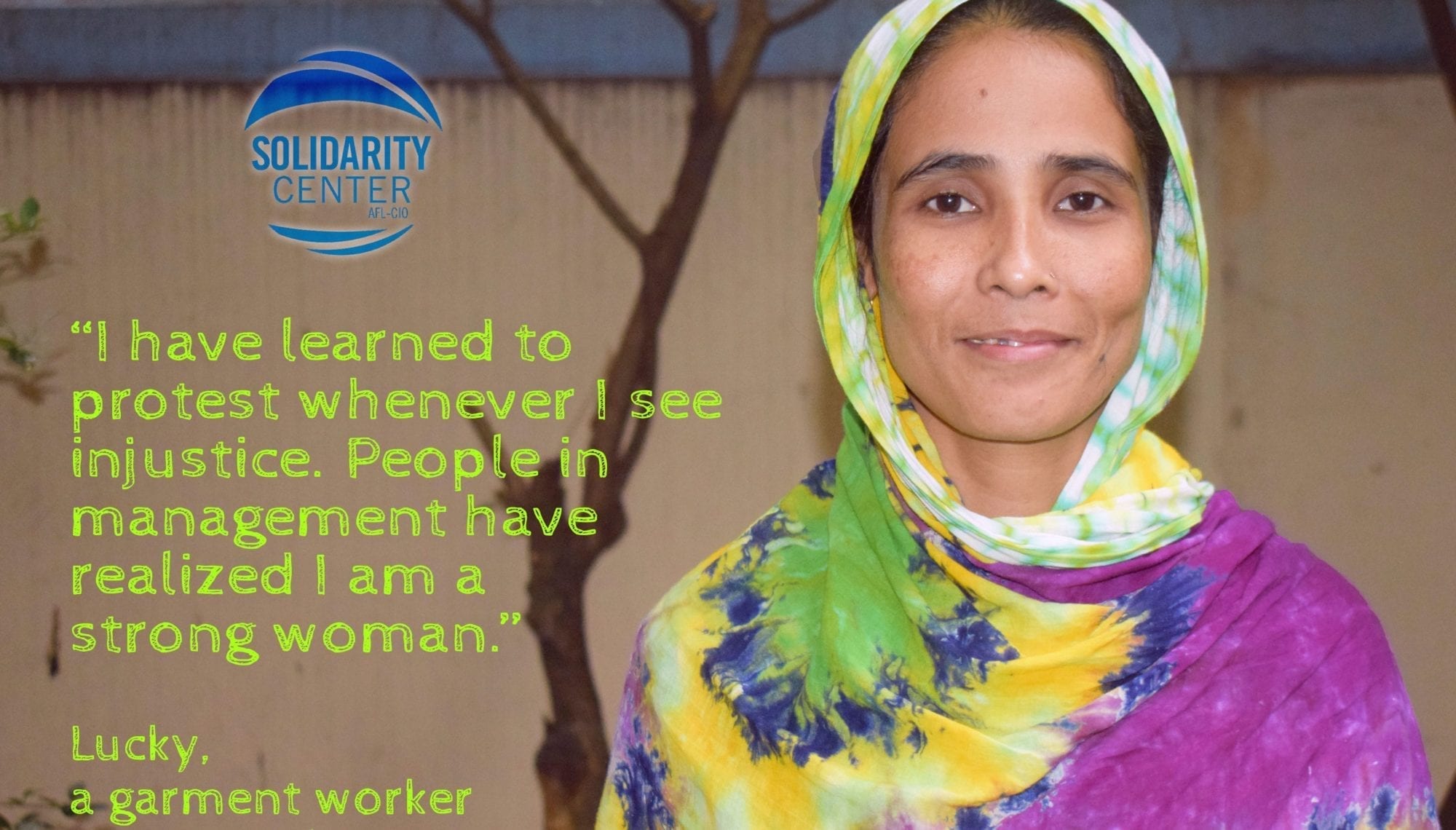More than five years after the Rana Plaza and Tazreen Fashion disasters killed more than a thousand garment workers and injured many more, workers in ready-made garment factories in Bangladesh still struggle to make ends meet. And even now, garment workers often are forced to work in unsafe and unhealthy conditions.
Workers recently interviewed by the Solidarity Center say their employers set harsh production demands with short timelines. In fact, following the government’s recent minimum wage increase from $63 a month to $95, management in some factories pre-emptively set higher production targets. As a result, workers face unbearable pressure to work more quickly and produce more.
Verbal abuse and insults, such as name calling, is routine, workers say.
Many, like Shefali, also suffer from severe health problems after working between 10 and 14 hours per day.
Shefali, who asked that her real name not be used for fear of retaliation, says she is unable to sleep for several hours at a stretch because of pain. Other workers who stand long hours on factory lines say they are unable to sit for extended periods because of joint pain.
Putting Solidarity Center Fire Safety Training into Practice
And for many workers, fire safety is still a danger in many factories. To address the issue, the Solidarity Center’s ongoing fire safety trainings have reached thousands of garment workers, who learn how to extinguish fires, provide first-aid during incidents and safely handle chemicals. They also learn how to identify risks in building safety, abrasions in wiring and machine equipment and how to report those risks to management to help prevent their factories from becoming another Rana Plaza.
The trainings also provide workers with a platform to come together and share their workplace hardships and strategies for improving their work environment.
Lucky, who participated in one of the safety trainings, has put the lessons into practice.
“Once, there was fire in our factory and everyone rushed at the gates to escape. I saw a pregnant woman who was injured, and I could not leave her there alone. It is not by fire that people die but from the struggle during escape that causes death. So, I grabbed another colleague of mine and went to her to help. I wrapped my scarf around her as quickly as possible and pulled her out to safety,” she said.
Lucky added: “In another instance, I helped put out a fire at my neighbor’s home when no one could do it. I dipped a sack in the nearby river and threw it over the gas burner. People were amazed and said, ‘How can a woman do this?’ I learned this from all the training sessions I participated in over the years. It was really fruitful as I implemented what I learned a number of times inside and outside of my workplace.”

